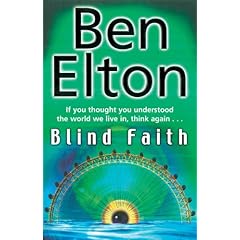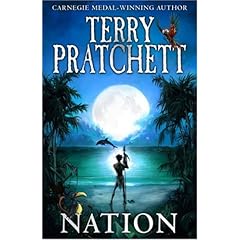
Ben Elton’s brilliant recent novel ‘Blind Faith’ describes a dystopian post-apocalyptic world with frightening similarities to our own.
The following conversation is, I think, fascinating:
‘Let me put it differently. Don’t you ever want to understand something?’
‘I’m going to sleep.;
‘The Lord made Heaven and Earth. The Lord made us. The Lord does this, the Lord wants that. We don’t know how or why, we don’t need to know, it just happens. There’s never any explanation, it’s all a miracle. Children are born, some die, it’s God’s will, we can’t change it. Don’t you think that, in a way, that’s sort of . . . sort of . . .?’
‘Sort of what?’
‘Pathetic?’
Whatever else Chantorria had expected him to say, it clearly wasn’t this.
‘Pathetic?’
‘Well, to just . . . give up . . . leave everything to God. I mean why did he bother making us in the first place if the only function we serve is to believe in him and then die. Isn’t that a bit pointless?’
‘I wish you wouldn’t talk this way, Trafford. It’s weird. Our job here on Earth is to have faith. Faith is an acknowledgement that there is something bigger and more important than us, which I certainly hope there is. What’s pathetic about that?’
‘Well, perhaps I want something else in my life, something other than faith.’
‘What could there be other than faith?’
Trafford struggled to think of the word. He knew there was one, he had heard it used in different contexts, but this was the context for which the word had been coined.
‘Reason,’ he replied.
‘A reason? … Isn’t your daughter a reason? Aren’t I a reason?’
‘No, not a reason. Reason itself. I want to work something out in my own mind. I want to arrive at a conclusion because I’ve thought it through, not because I’ve been told to believe it. I want to take part of my life back from God.’
‘Trafford,’ Chantorria replied, and there was fear in her eyes, ‘you can’t deny God! They’ll burn you!’
‘I’m not denying God!’ Trafford said hurriedly. For all his brave words, he was a long way from wishing people to think him a heretic. ‘Surely you can act independently without denying God? I would have thought that any God with half a brain would expect that of his children.’
‘Trafford!’
‘I mean wouldn’t faith itself be more valuable if it was arrived at through question and doubt? What’s the use of blind faith? Seriously, it’s not difficult saying you have faith if the alternative is being burned alive. But does that mean you really have faith? That man this evening, the Chris-lam. He had faith.’
‘Trafford, he very nearly got beaten to death. You want to get us both beaten to death? Is that it? That man was mad.’
‘Of course he was mad to do what he did. To risk dying for his faith. You wouldn’t do that. I wouldn’t do that. Faith to us is anything we’re told to believe. If Confessor Bailey told us that a cherry alcopop represented the blood of Diana we’d worship it without a thought. But that man tonight –’
‘Who could have been killed –’
‘That man had arrived at his faith despite what he has been told. His faith was personal. He’d thought about something and decided to act upon the conclusions he’d drawn. I’d like to do that.’
‘You want to get beaten to death?’
‘You’re not listening to me! What I’m saying is, wouldn’t it be an astonishing thing to act independently? To think something through? Decide upon a course of action and then follow it. Wouldn’t that feel good?’
‘How would I know? Who’s ever done that?’
(pp. 134-6)
























